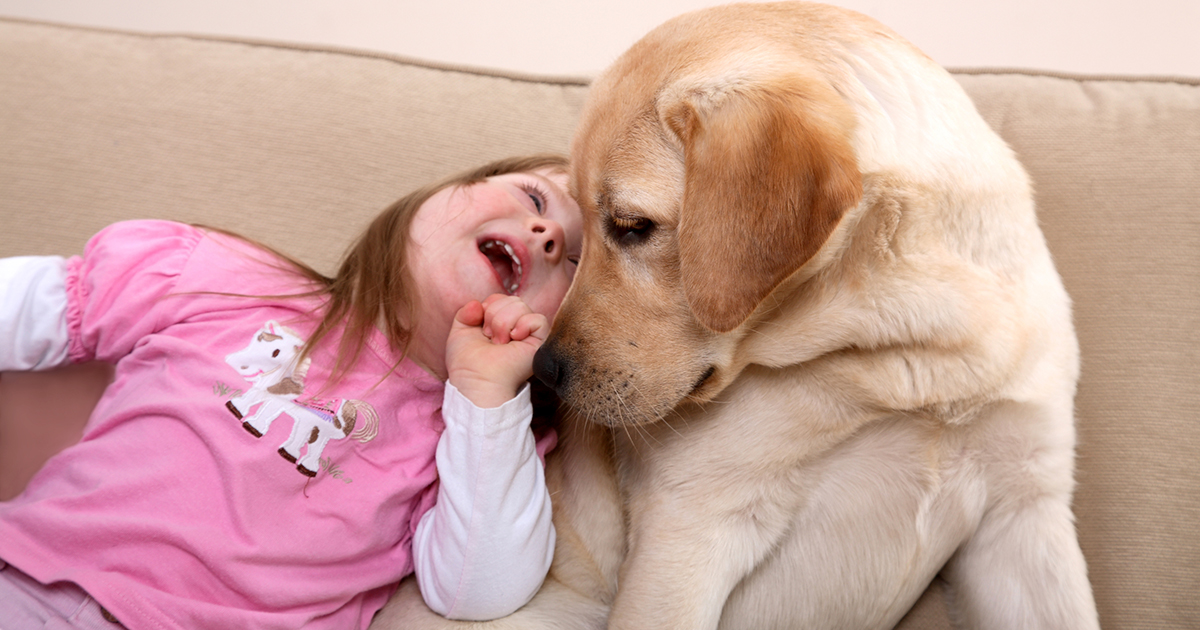The Different Conditions Therapy Dogs Help Treat
Coordination & Motor Conditions

A study conducted to determine whether a therapy dog's presence would affect the performances of language-impaired and typical preschool children regarding their gross motor skills found that the dogs were indeed of assistance. As with other therapy dogs, those intended to aid children with coordination and motor conditions must be well socialized and even-tempered to co-exist in a classroom without disruption. The dogs must be helpful, not hindrances. And as with other situations, therapy dogs are invaluable for their owners; providing companionship, providing physical support if they are large enough, and lowering the levels of cortisol, the stress hormone, while raising dopamine and oxytocin, happiness and bonding chemicals in the brain.